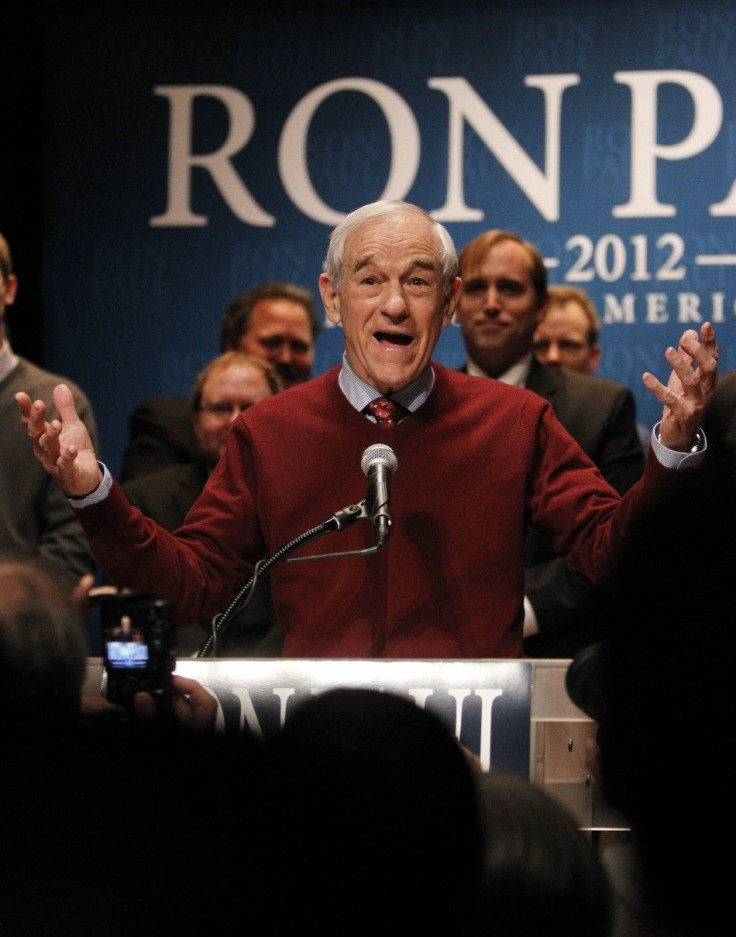Ron Paul's 'Audit The Fed' Bill Passes House With Bipartisan Support

Ron Paul's so-called "Audit the Fed" bill, aimed at making the U.S. Federal Reserve more transparent and accountable, passed the U.S. House of Representatives in a rare moment of bipartisanship on Wednesday.
The bill was co-sponsored by 270 House members, meaning it was bound to pass out of the lower legislative body with ease, but when the final votes were tallied it was straight-up landslide in favor of the bill, with the final tally coming to 337 ayes and 98 nays.
Rep. Bob Turner of New York was the lone Republican to vote against the "Audit the Fed" bill, while 89 Democrats voted in favor of the measure, which was touted heavily during Rep. Ron Paul (R-Texas)'s 2012 presidential campaign.
Similar, weaker legislation was passed in 2010, but Ron Paul argued that the law did not have enough teeth to sufficiently address his concerns about transparency at the Fed, and that it did not go far enough as it limited the focus of the audit to emergency credit and procedure issues, according to the Huffington Post, while the new legislation does not place any limits on the audit's scope.
U.S. Rep. Dennis Kucinich (D-Ohio) was a leading Democratic proponent of the bill, and he has been very critical of the Fed and banks in recent years. He shouted the following on the House floor during a pre-vote discussion of the bill on Wednesday, according to the Huffington Post:
"The Fed creates trillions of dollars out of nothing and gives it to banks. Congress is in the dark," Kucinich declared. "The Fed sets the stage for the subprime meltdown. Congress is in the dark. The Fed takes a dive on LIBOR. Congress is in the dark. The Fed doesn't tell regulators what is going on. Congress is in the dark," Kucinich shouted on the House floor, just before the vote."
The Federal Reserve's chairman, Ben Bernanke, warned the House Financial Services Committee recently that the bill could create "a political dampening effect on the Federal Reserve's policy decisions," Bernanke warned, according to the HuffPo. He said it needed to have some exemptions for monetary policy.
But two "senior Senate Democratic aides" indicated to the news site that the bill is not likely to be passed anytime in the next couple of months, if ever.
© Copyright IBTimes 2024. All rights reserved.




















